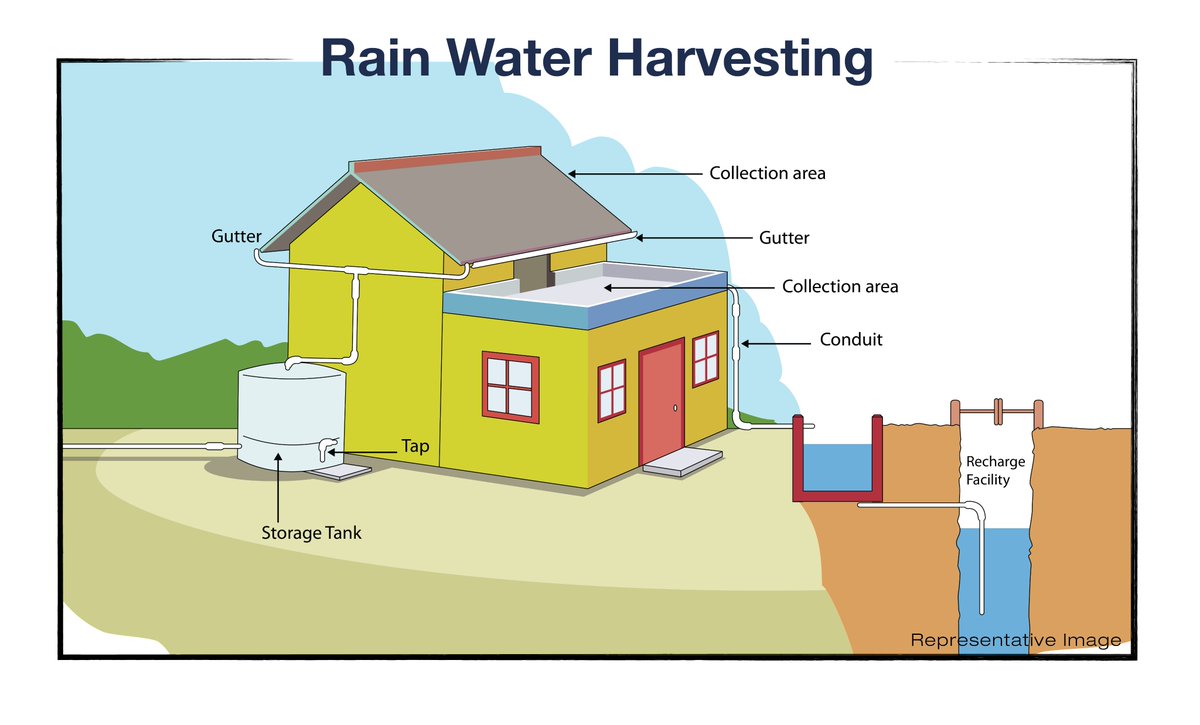Rainwater Harvesting For Factories

Engineering on Rainwater Harvesting System
Sales of Rainwater Harvesting Filter
Consultant of Rainwater Harvesting
Awareness Session on Rainwater Harvesting
Saving Money And The Environment With Rainwater Harvesting In Factories
Rainwater harvesting is a process of collecting and storing rainwater for future use. It is a smart way of utilizing a natural resource and minimizing the amount of water used from sources such as municipal water supplies. Rainwater harvesting is gaining in popularity as a sustainable means of water provision, and it has become especially popular in the industrial sector.
Industrial factories require large amounts of water to operate. This water is often sourced from municipal water supplies, which are becoming increasingly scarce in many parts of the world. Rainwater harvesting is a way for factories to reduce their reliance on this scarce resource and also to reduce their water bills. It is also a way for factories to reduce their environmental impact by reducing the amount of wastewater they discharge into the environment.
There are several different techniques for rainwater harvesting for factories. The most common type is rooftop rainwater harvesting, where rainwater is collected from the roofs of buildings and stored in tanks. This water can then be used for various applications, such as flushing toilets, washing machines, and cooling and heating systems.

Rainwater Harvesting For Factories
Gutters and downspouts can also be used to collect and store rainwater. These systems are typically connected to a storage tank or cistern.
The water can then be used for various applications, such as landscaping and irrigation. Rain gardens are another popular method of rainwater harvesting. These are shallow pits or depressions that are filled with vegetation that is highly absorbent and helps to filter the rainwater. The water is then stored in a cistern or storage tank for future use. Rainwater harvesting can also be used to supplement existing water sources and reduce the amount of water used from municipal supplies. This is especially beneficial in areas where water sources are scarce or expensive.
By harvesting rainwater, industrial factories can reduce their water bills and their environmental impact. Rainwater harvesting is becoming increasingly popular in the industrial sector as a sustainable means of water provision. It is a smart way of utilizing a natural resource and minimizing the amount of water used from sources such as municipal water supplies. Rainwater harvesting can also reduce the amount of wastewater discharged into the environment and reduce water bills. With the right approach and techniques, industrial factories can benefit from rainwater harvesting and reduce their reliance on scarce water resources.
Rainwater Harvesting In Factories
Rainwater harvesting can also help factories to maintain a reliable water supply during times of drought. By collecting and storing rainwater, factories can ensure that they have a water source that is not affected by drought. It is especially important for factories located in areas that experience frequent droughts, as the lack of water can cause production to stop. In order to make the most of rainwater harvesting, factories need to invest in appropriate infrastructure.
This includes the installation of rainwater tanks and cisterns, as well as a system of pipes and pumps to transport the collected rainwater to the desired location. Additionally, factories should ensure that the rainwater tanks and cisterns are properly maintained to ensure that they remain functional and in good condition. Rainwater harvesting can also be used to reduce the amount of polluted runoff that enters waterways. By collecting and storing rainwater, factories can prevent pollutants from entering rivers and streams. This is especially important in areas where there is a high risk of water contamination due to industrial activity.
Rainwater harvesting is an effective way for factories to reduce their water bills and maintain a reliable water supply during times of drought. It is an efficient use of a natural resource and can help to reduce the amount of polluted runoff that enters waterways. Factories should invest in the appropriate infrastructure and ensure that their rainwater tanks and cisterns are properly maintained. By doing so, factories can make the most of rainwater harvesting and ensure that they have a reliable water source for their operations.
No.1 Rainwater Harvesting Company in Kerala
Harvest every drop of Rainwater , Make earth Rich of Life and Vegetation


